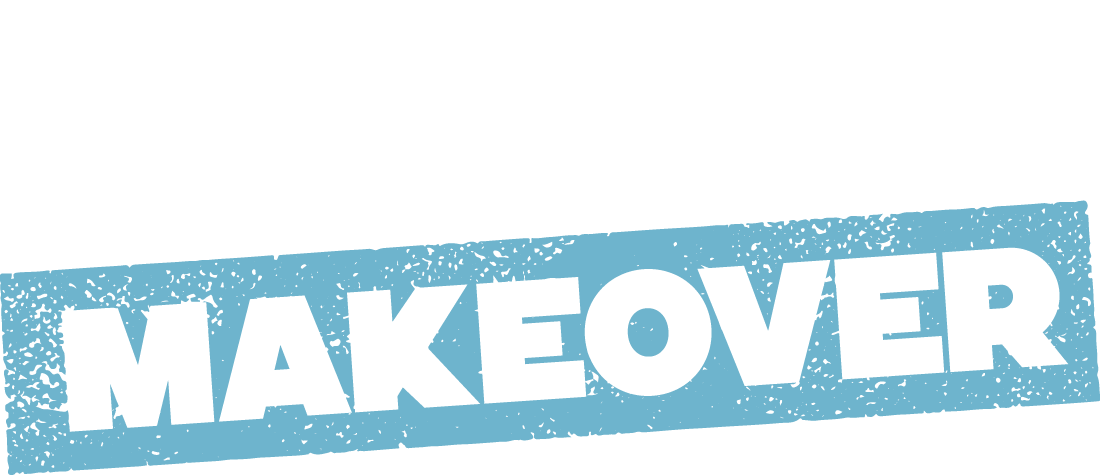
Jennifer Peagler, Founder and CEO, Peglu
(photo credit: Kat Araujo)
Pitch Makeover host Natalia gets the 60-second pitch from Jennifer Peagler of Peglu, a package delivery service that also helps small businesses offer same-day shipping. Plus, in the Legal Minute, Mitzi Chang of Goodwin on where startups should incorporate. And, this week’s Investor Take from The Harnisch Foundation: pay attention to reactions.
Music courtesy of Seven Seas Music (a Pipeline Angels portfolio company!)
EPISODE TRANSCRIPT
Natalia: Hi everyone, my name is Natalia Oberti Noguera. I am the Host and Creator of Pitch Makeover and I’m also the Founder and CEO of Pipeline Angels, where we are changing the face of angel investing and creating capital for women and non-binary femme social entrepreneurs.
Gina: And I’m Gina Delvac, the Founding Executive Producer of Pitch Makeover. We’re taking the concept of a fashion makeover and applying it to startup pitches. Entrepreneurs pitch, we talk, and then we share some feedback on what they should keep, delete, and maybe even more important—add to their pitch. Our goal—help more voices, as Rihanna says, shine bright like the diamonds that they are.
And after the Pitch Makeover we have the Legal Minute with Mitzi Chang of Goodwin, answering burning startup legal questions, followed by First Pitch. And stay till the end for this week’s Investor Take from Ruth Ann Harnisch of The Harnisch Foundation.
Natalia: Welcome back to [1:00] Pitch Makeover and thank you to Jennifer Peagler, Founder and CEO of Peglu, for joining today. Hey, Jennifer!
Jennifer: Hello, hello.
Natalia: I hadn’t ever thought there was a connection between Peglu, your company name, and Peagler, your last name, and right now it’s just staring right in front of me, I’m like, “Oh my gosh!” Is there a connection?
Jennifer: So, there is a connection, but not to my last name. The name is from my *mother*. It’s a combination of her first name, which is Peggy, and our middle name which is Lucille. So Peglu is my mom. (Laugh)
Natalia: Oh! (Laughs) And that’s…your pitch? My mom!
Jennifer: Yes! Exactly! (Both laugh)
Jennifer: Exactly. She’s the biggest advocate, so that’s where it came from.
Natalia: Awesome. So are you ready to pitch, Jennifer?
Jennifer: I am. I think so.
Natalia: Okay. Ready? Set? Go!
Jennifer: Peglu is a members only package and return delivery service [2:00] that’s based in Washington, DC. We ensure that your online purchases actually reach your front door and enter into your hands at a time that’s most convenient for you through non-intrusive logistics tracking. So that is Peglu.
Gina: 19 seconds.
Natalia: Thank you! Especially when you first started, the whole package and delivery, I’m of course thinking about FedEx, USPS. So I’m hearing your pitch and I’m, like, thinking of all these names, like—and I’m like, “How is she different?” And then you mentioned something. You mentioned this word “non-intrusive.”
Jennifer: Mm-hmm.
Natalia: So would *love* to hear, like, how do you differentiate yourselves from all—all those names that I, you know, shared.
Jennifer: Well, one of the key differentiators for us is that we’re actually delivering the package at a time that you’re home. My business idea actually came out from a personal problem that I had. When I lived here in New York I lived in a Brownstone. I didn’t have a doorman at my house and I knew my neighbors [3:00] but we were all busy, we were all working during the day. And so whenever I would order things online I would either have to work from home, or take a work day so I could be there. I would have to wait four or five hours for the delivery man to come and sometimes he would or would not ring the doorbell and I would miss it. Or I would have to walk—if I missed the package—walk to USPS, actually my local post office, and wait for almost an hour for someone to grab my package.
And then when I moved to DC I realized that some of my friends were experiencing the same—same thing and they actually *owned* homes in DC. So, you know, a friend would text me on occasion, “Hey are you going to be home to intercept this package for me or to sign for this package?” And so I did a bit more research and that’s when I realized that this is generally just a common issue that people are facing.
And so with UPS and FedEx, this is something that could essentially be a compliment to what they’re doing, but we’re actually kind of the last mile logistic solution [4:00] for them, I would say. So that’s one thing that I think is really a differentiator for our business.
Natalia: How does it work?
Jennifer: It’s fairly easy. So there—there’s three steps. So, what you would do is subscribe. So that’s where you would go on our website, www.peglu.com, and you would select a membership level. So you would either do “A La Carte” where you would have packages delivered as they come, as you purchase them online. You could do our “Monthly Blue” membership which is a monthly subscription where you would get a certain number of packages per month that we would deliver and return for you. And then if you’re someone that just shops naturally, you know, every day, every other day, you could also sign up for our “Yearly Gold” membership and that allows you unlimited delivery and return of your packages for the entire year.
So once you subscribe, then you would select the delivery—your delivery preferences. So that includes the days that you would want your packages delivered, that includes the times that you would want your packages delivered [5:00], and then also if you have any returns you can select that as well, and your notification preferences. So that’s what we store on our end when your packages comes to our facility.
And then the third thing, which is most important is…to shop! So when you go online and you sign in as a member, you’re actually given a unique member ID and shipping details for our Peglu facility. So you could either save that to the website that you visit, one-and-done, or you just use that information each time you shop. And then from there it’s…we take it over. We—We handle it.
Natalia: So instead of having it mailed to my address, it would go to—
Jennifer: Peglu facility. Mm-hmm.
Natalia: —your address. Yeah. What is life happens? You mentioned—you know, like, I go in and put my preferences of, like, the days and times and returns. What if, like, I have an unexpected business trip—
Jennifer: Mm-hmm.
Natalia: —or something, and so, like, I’m not actually there—
Jennifer: Mm-hmm.
Natalia: —when I’m *supposed* to be there—
Jennifer: Right.
Natalia: —even with Peglu. Like, how—what happens there?
Jennifer: So that’s the fun [6:00] thing about the notification. So, when the package comes to our facility we’ll send you a text or an email, which either you prefer, stating “Does Tuesday between 6 & 7PM still work for you? Yes or no?” And then we’d go through the preferences there to get the date and time that actually works for you. Now, if you’re not going to be home but someone is still going to be at your address, you can still confirm that the date and time that you selected.
Natalia: Okay.
Jennifer: So there’s that flexibility.
Natalia: And that’s something that you are providing that USPS, or like, these others, they’re not checking in—
Jennifer: Exactly.
Natalia: —on someone to be like, “Are you going to be there?”
Jennifer: Right. The onus is on you to actually go to their website, type in the information, have to change the location, have to change the time, etc. We’re actually being proactive with that.
Natalia: So you’re—in some ways—you have the push notifications—
Jennifer: Yes.
Natalia:—in a way, right?
Jennifer: Yes. But not intrusive. (Both laugh)
Natalia: And you mentioned that you could actually *work with* all these other—I kind of heard a hint of a B2B model—
Jennifer: Mm-hmm.
Natalia: —in terms of, like, the, “We’re [7:00] the last mile for them!”
Jennifer: Right.
Natalia: So, like, what would that look like? Have you started experimenting that?
Jennifer: So, we have actually. So, one thing that I’m also really passionate about is supporting local businesses. And so, our B2B initiative is actually tied to supporting local businesses that might not have the capacity or the initial desire to provide same-day or next-day delivery. So our B2B model is providing that delivery service for their clients. An example of that would be you might have your favorite local boutique where you shop on occasion, and you might have found a dress that you really love but you’re unable to pick it up for whatever reason. If that business is one of our partners then we could actually come and pick up the dress from the boutique and deliver it to your house. So we’re providing, sort of, an added value to not only the businesses, but you as their customer, and then we’re hoping that from that experience you would want to transition to Peglu as a full-time member and have all of your packages delivered [8:00] or returned through us.
But regarding the actual connection with UPS and FedEx, based on the technology that we’re developing, or have developed, for Peglu they could leverage that for their current customers as well. So…yeah.
Natalia: I’m going to ask you a hard question to ask. However, I can imagine you might expect it. *What if FedEx comes up with a way to have push notifications?*
Jennifer: They potentially could. But I don’t—in my opinion they don’t actually have the capacity to change a lot of their localized logistics. And I think that’s something that’s very different. So being able to track your package to your front door, you would have to develop the technology to do that for every single member. I mean they have millions of people that use FedEx on a daily basis. Millions of people that use UPS on a daily basis. So I think it’s tied to that localized [9:00] connection, and that localized ability to track the package from our facility to your house.
Natalia: And that’s why you’re saying that’s where you come in because you’re that last mile?
Jennifer: Exactly.
Natalia: Okay.
Jennifer: Exactly.
Natalia: That’s helpful, thank you.
Jennifer: We’re closing the loop for them.
Natalia: Jennifer, are you ready for my keep, delete, add feedback?
Jennifer: Yes…? (Both laugh)
Natalia: So, I would love for you to keep the non-intrusive logistics packaging…language because it’s on the mark, it’s very helpful in getting a sense on how you’re different, you know—
Jennifer: Mm-hmm.
Natalia: —from others out there. I don’t want you to delete anything!
Jennifer: Yay! (Laughs)
Natalia: I do want you to add some stuff. I *really* appreciated how you talked about the B2B potential that you have, like your B2B model. And especially you were able to [10:00] share your passion regarding supporting local businesses. The two main items I would say would be super helpful to add: the first one would be the whole idea of, like, being the first user founder. Right? Or, like, the fact that you actually were the first customer because you’re coming at it from, like, experiencing the pain of the market yourself. How you talked about waiting *an hour* to pick up your mail at USPS. Like, *an hour* is time you could be doing something else.
Jennifer: Right!
Natalia: So, like, you’re actually helping people save that hour—
Jennifer: Mm-hmm.
Natalia: —and put it to work…in a different way.
And then, you know, like, your answer to the “What if life happens?” Right?
Jennifer: Mm-hmm.
Natalia: Because if you’re able to showcase how you’re already anticipating through your technology. Right? Like, you’re already anticipating the what-ifs. The *non-intrusive* push notifications!
Jennifer: Right. (Laughs)
Natalia: —as you said. Like, that’s really the sweet spot. Like—
Jennifer: Mm-hmm.
Natalia: —how you’re [11:00] changing the game. This is how we’re disrupting the flow. I’m going to share, like, my pitch makeover tip—
Jennifer: Yeah. (Both laugh)
Natalia: —before we usually do. Which is, like—you know people often say, like, the personal is political, the political is personal? And I’d even add another layer, the personal is political, the political is personal. Guess what? Personal is business.
Jennifer: Mm-hmm.
Natalia: Business is personal. And so, if you make it personal, if you make your business personal—
Jennifer: Mm-hmm.
Natalia: —then that’s a way that you can really connect, engage, and reach potential customers. Okay.
Jennifer: I love that! (Laughs)
Natalia: Yeah?
Jennifer: I love that.
Natalia: Are you—
Jennifer: Thank you!
Natalia: Wait a second. Are you ready for your pitch makeover?
Jennifer: Uhm… (Both laugh)
Natalia: Well, guess what? I’m going to still say it! Ready? Set? Go!
Jennifer: Peglu is a members only package and return delivery service that’s based in Washington, DC. When I moved back to DC, I realized that I dreaded waiting for my delivery man to come and deliver my [12:00] packages, or…not knowing exactly where he was when I would need to be home to get it. And so, from there I created Peglu, which actually ensures that your packages comes to your house at a time when you can receive them. In addition to our delivery service, we also offer a same-day and next-day delivery to our local businesses. We recognize that you want to be able to provide concierge services to your clients and so we allow them to get any orders from you same-day or next-day as an added value for your business. So check out Peglu at www.peglu.com.
Gina: Forty-nine seconds.
Natalia: I *connected* with you, Jennifer! Like—and you also—your energy when you were talking about it, like, you were, like, frustrated and I heard it in your voice. And think about how many people are frustrated by the same thing.
Jennifer: Right.
Natalia: They’re going to be like, “Let’s go to Peglu.” You know?
Jennifer: Yeah. (Laughs)
Natalia: So, thank you for that!
Jennifer: Thank *you*.
Natalia: I’m excited. How–What’s your take [13:00] on this experience? What’s your experience on the Pitch Makeover?
Jennifer: No, I love this. I think part of it, and you touched on it, the reality that personal is business, business is personal. I’ve always been in the mind set to separate myself from it. I mean, my frustration was what started the idea and what started the business, but still being able to bring it to the forefront through my pitch I think is definitely important and something that I’m going to do moving forward.
Gina: Next up is the Legal Minute with Mitzi Chang. Stay tuned after that for First Pitch.
We’re back with the Pitch Makeover Legal Minute and Mitzi Chang is here from Goodwin. And Mitzi, what is the best place for a Startup to base their business?
Mitzi: So, I think we always recommend incorporating in Delaware and the reason we do that is because Delaware has a wide body of law and it’s also [14:00] very business friendly. So whether you want to do a Delaware LLC or a Delaware Corporation, that’s the location that a lot of investors are comfortable investing in with respect to an entity that’s organized there. So I would definitely recommend Delaware, unless there’s some other reason to do it in another location.
Gina: So whether or not I have my offices and I’m based in California or New York City or Utah or anywhere else, I have the option of incorporating in Delaware, is that right?
Mitzi: That’s correct. So you would qualify as a *foreign* corporation typically where your headquarters is. So you would—you know, let’s say I incorporate in Delaware as a corporation, but my main headquarters is in New York City. So I would qualify as a *foreign* corporation in New York City even though I’m incorporated in Delaware.
Gina: Thanks, Mitzi!
Mitzi: You’re welcome. Thank you.
Gina: This has been the Legal Minute on Pitch Makeover.
Now we’re back with entrepreneur Jennifer Peagler and our segment First Pitch.
Natalia: Tell me about your first pitch ever.
Jennifer: Yeah, [15:00] so my first pitch ever was actually at this entrepreneur program in DC that I did. It’s called The Black Upstart, so shoutout to “The Black Upstart” in DC. And it was actually a completely different concept than what I pitched today. So my initial idea was a minority-owned, sort of, business directories. Like a Yelp for minority businesses. And so I participated in this program and pitched in front of…a room full of people for the very first time. And so the response was very positive. People were, like, really impressed and, “Keep going and keep pushing!” And so, I mean, that kind of gave me the confidence to continue with that initial idea. And then that is actually the idea that caused me to resign from my full-time job in New York and move back to DC.
When I moved back to DC I realized *quite quickly* that the idea was nice, but not actually something I genuinely [16:00], genuinely was passionate about. So I had to do some—some internal analysis and, you know, realizing that, “Hey! This is something that I may have to rethink and shelf for right now.” And the concept that—for Peglu—right now was something that immediately hit me, something that I could immediately kind of connect with and I literally woke up one morning at 3AM and I could *see* how Peglu would run. And so I got my notebook, I sketched out—I still have the pages, like, sketched out—how Peglu would look from the website, how our value proposition would be, literally, like, my business plan from 3AM to maybe 10AM in the morning. And that’s when I had, sort of, my, like, this-could-be-it moment. And then I shared the idea with my best friend and she was like, “I think this is it. This is it.” And so I built the initial website myself and so things just started flowing. And it feels right. So I did a complete 180 (Laughs), just to go back to [17:00] your question, I did a 180 from my first—from my first pitch to where I am today.
Natalia: Do you remember the feedback that you got at that first pitch? For, like, that other model?
Jennifer: Yeah, so the feedback that I received for it was—in terms of the business concept—I received positive and negative feedback. So, when I initially pitched the idea it was like, “Oh! This is a great idea, we need a resource to find minority businesses.” So there was definitely, and there *is* definitely, a need for it, but in terms of it being a scalable business, *that* was the pause moment. Where it was like “Jen, this is great, you can do this,but this isn’t something that we see as a real, scalable business. It’s going to be difficult to get, you know, investment. It’ll be difficult to get people on *board*, especially when you’re thinking about having to: one, find businesses who want to participate and be active in the platform. And then when you think about it, are people really that critical about the business owner [18:00] of the store that they visit?”
Natalia: Do you remember your first pitch for Peglu 2.0?
Jennifer: So, yeah, so my Peglu 2.0 pitch actually was…to my…now CTO (Laughs). So I actually haven’t presented, like, formally to anyone the new concept. But I had an initial, sort of, idea and…yeah I pitched it, I mentioned what the problem is and what I was looking for and he was sold.
Natalia: What was his feedback?
Jennifer: He was excited. And he realizes that there is a huge opportunity in this market. And sky’s not the limit. It’s…you know, just—let’s do it.
Natalia: So you—like that’s also, like, your—your most recent?
Jennifer: Ex—
Natalia: Would you say?
Jennifer: Exactly. I would say—
Natalia: Okay.
Jennifer: —that’s—that’s my most recent. Like, I haven’t—I mean, I’ve presented it and talked about it to various people, but within my immediate network I’ve definitely been talking about it and selling it through.
Natalia: So, I’m going to call [19:00] *that* one that you just said about the CTO which obviously, like, ‘kay you got a CTO on board, so congrats.
Jennifer: Thank you.
Natalia: I’ll say that that was your most recent pitch. And I’d love to hear about what I’ll consider your first pitch which was when you spoke with your friend, remember that you said—
Jennifer: Yes!
Natalia: —it was the day of?
Jennifer: Mm-hmm.
Natalia: When it happened.
Jennifer: Yes!
Natalia: And what was your friend’s feedback?
Jennifer: She—she heard it, she literally just looked at me and she said, “This is it.” Just looking at you, like seeing the amount of energy, seeing your energy. And she recognized that I *am* passionate about local businesses and this is a way to bring that into the equation as well, she was just like, “I’m excited. Yeah, this is it.” (Laughs)
Natalia: I love it. Well, thank you Jenn for joining us. I’m obviously, like, a huge believer in Peglu 1.0, that’s why we’re where we are right now—
Jennifer: Right?
Natalia: —in TK’s studio which is a Black woman-owned studio.
Jennifer: Yes!
Natalia: We need to support more voices.
Jennifer: Yes.
Natalia: And [20:00] I’m really excited for you and for Peglu 2.0.
Jennifer: Thank you.
Natalia: Thanks for coming and being part of Pitch Makeover!
Jennifer: Thank you for having me, it’s been a blast. Thank you. (Laughs)
Gina: This season’s Investor’s Take is brought to you by Ruth Ann Harnisch of The Harnisch Foundation. And today’s Investor’s Take is: pay attention to reactions. And Natalia, this sort of strikes me like adaptability. What’s the way that entrepreneurs should be thinking about gauging other people’s reactions and being adaptable?
Natalia: One of my favorite signature events that we have at Pipeline Angels is our pitch summits. And we actually invite entrepreneurs. We generally have eight to ten who have been invited to present to our members for a chance to secure funding. We invite them to stay for the whole day and one of the reasons I like doing that: number one is because oftentimes the process out there in the real—you know, like, in the status quo, is so opaque. Like, the entrepreneurs are all lined outside these mahogany doors that are closed and then [21:00] each one goes in and out one-by-one, not knowing what’s really happening. And instead, at our pitch summits, the entrepreneurs stay for the whole day and also get to hear each other pitch, and also get to hear the feedback that our members have. And we have one or two members who *always ask the same question*. And it’s fascinating to see which entrepreneurs catch on and actually end up integrating that question. So they’re actually anticipating that question already and they’re including it in their pitch because guess what, they’re *adapting* to the situation, they’re adapting to what they’re observing and seeing that is important for the investors. I’d say that’s a way that, “Hey entrepreneurs, you know, like, if you remember this Investor’s Take from Ruth Ann Harnisch, you can differentiate yourself.”
Gina: Thanks again to Ruth Ann and The Harnisch Foundation.
Gina: Subscribe to Pitch Makeover anywhere you’re listening right now [22:00] including Google Play or Apple Podcasts, where we’d love for you to leave us a review. More information and show notes are at pitchmakeover.com and we’re everywhere on social media @PitchMakeover.
Natalia: Thanks for joining us. This has been Pitch Makeover. Now, go out and take over!



